SUMMARY
This is AI generated summarization, which may have errors. For context, always refer to the full article.
![[OPINION] Hoping amidst ‘this thing’: COP28 reflections from a 24-year-old first-timer](https://www.rappler.com/tachyon/2024/01/imho-c0-28-reflection.jpg)
I went to Dubai to attend COP28 last month. As a Humanities girlie who has always been more of a literature-and-art person, this was such a jarring experience. I only ever thought of climate change in broad strokes – you know, that thing that makes us suffer, that thing that has killed so many and could probably kill us all?
Being in a different country to attend the biggest climate change conference forced me to zoom in a bit, though, with my minimal knowledge and big worrisome brain. In my stay, I often thought about how the Conference of the Parties is older than me. For reference, I was born in 1999; the COP was born in 1995. Yet, we are still here doing the same thing. Despite this large and expensive gathering, we’re still facing this thing. From the vignettes I can remember, it has only gotten worse since I was a child, has it not?
I was in the overflow room for COP28’s opening where it was officially announced that 2023 was the hottest year we have had…like, ever. I wasn’t surprised by this. I was instead surprised by the headlines that followed – big and bold and red. I asked myself then, was I supposed to be surprised? Because to me, I thought every year in recent years, as it happens, was the hottest year ever. If there’s an active problem we don’t actually try our best to solve, it will only get worse and blow up in our faces after decades of warnings. It doesn’t take a scientist to know and think this.
What can we really expect after lukewarm efforts?
I am a baby in the climate movement. I have only been working in the Manila Observatory for a little more than a year. It’s safe to say that I don’t really know much – about the science of climate change, or the negotiations because of climate change. Ultimately, I only really know the effects that I’ve felt and seen other people experience. Maybe not knowing much aside from the bad has led me to be nihilistic and pessimistic. At COP28, I often thought, why are we really here? Why were we doing a climate change conference in Dubai, a big oil-producing country? Why was Sultan Al Jaber, the head of Abu Dhabi National Oil Company (ADCO), named COP28’s President?
Most of the events I followed were youth-led, and it seemed that, despite these ironies, it is the youth’s job to be hopeful. As part of this younger generation, I found myself getting angry because of this. It is a great ask from neglectful governments and giant corporations to demand hope from us when they have barely done anything to earn it.
Of course, I understand the importance of negotiations and diplomacy and alliances. I understand that policies can bring change. I guess it’s just that as someone who was an outsider to this world until recently, how come I have never felt any good change? And if I haven’t, am I in a place where I can hope for things? Does hoping, then, become a privilege?
I am not a fan of this spiraling thought – that I shouldn’t hope because of people in power, that there is no place for hope, that this thing is so much larger, so really, what’s the point? In Sibol, an anthology by Green Dreams of a Generation, the editor’s foreword says, Many of us are tired of convincing other people to listen to us.
In my stay in Dubai, I swung between anger and guilt repeatedly. Angry at having hope, and guilty of being angry at having to hope. I come back to a colleague’s question at one of those COP dinners you do to network and catch up with work partners. She asked the entire table, why are you here [doing climate work]?
I gave an easy answer. I was about to graduate and was offered a job so I took it. Why not? In a table full of people doing climate work, everyone will have finished their dinner before everyone’s done with their stories. In truth, I have no special climate story of my own pushing me into this realm. In truth, I was desperate to be employed. I thought, climate change is a “universal struggle.” Kumbaga, everybody experiences it albeit disproportionately. Therefore, the movement is accessible.
After the dinner though, I kept going back to another time of anger and hopelessness for me. My years in Ateneo, the ones when I was physically on campus, are less than half of what it should have been. At a very crucial point in college — although all of those years are arguably crucial — my second semester of second year when my majors were important for my writing, when I could feel my bones melting into the campus out of comfort and love for it, when I was finally ready to drink, all schools closed. Everything did. Indefinitely.
It pushed a lot of people, especially students, into a very dark place. Our routines, our communities, our spaces were gone. We were forced to show the vulnerabilities of our homes through Zoom classes, forced to listen to our tinny speakers echo our professors visibly as disengaged as we were. And then with all of this, two typhoons. Typhoon Rolly then Typhoon Ulysses. Ulysses forced our fellow students to their roofs. We watched videos and heard recordings, in the same tinny speakers, of people from the North begging for help. Amidst all this, we didn’t hear from the administration soon enough. No suspension of classes, no extension of the break we were having (from what I can remember). Nothing. Between the calamities and the pandemic, the students had no space to think of school. There’s really no other way to describe it, it felt like we were drowning in grief.
My batchmates and I started to protest, which turned into a student strike – One Big Strike. This was a polarizing movement; either people really supported us or had no problem trying to wreck us. We ended up dropping our subjects to protest against the criminal negligence of the government in handling both the pandemic and the calamities. We echoed the youth and education sectors’ call: no student left behind. We interviewed students, we gave relief, and did a clean-up. We did as much as we could in the whirlwind that was the strike.
It was not perfect, but it was ours. And we fought as hard as we could. In a time of anger and hopelessness, we persevered.
In Kasiglahan Village in Rizal, when we did our clean-up, we got to talk to former Kabataan Partylist Rep. Sarah Elago. She told us to keep marching forward despite things. And we did. We kept being angry, but we also found hope among each other. I found hope in my co-organizers.
I then understood that I was there, in Dubai and in the movement, because of community. I cared for local communities who are drastically impacted not only by climate change, but by extractive practices. In Kasiglahan, we shoveled an unimaginable amount of mud inside and surrounding relocation houses. They said it was because the mayor allows quarrying in the mountains, causing the soil to be loose. I was there and now here for and with communities.
Remembering my time as a student on the brink of giving up, I now understand that while it is frustrating to hope, I do so anyway. But my hope is reserved for my fellow youth. My hope is reserved for the marginalized communities. My hope is reserved for environmental defenders. My hope is for those fighting the good fight. For those who march on despite things. The point of hope then, is not so the people in power can feel better about themselves. It is not for them to wash their hands. Hope is the only way we are able to live in a world of all-consuming catastrophe. The point of hope is surviving this thing, and surviving it together. We can be angry and hopeful, but we never have to feel these alone. – Rappler.com
Bernardine de Belen is a magna cum laude Humanites graduate of Ateneo de Manila University who currently works as a researcher and program coordinator at the Klima Center of the Manila Observatory.
Add a comment
How does this make you feel?
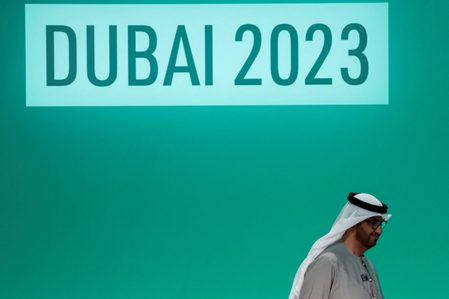
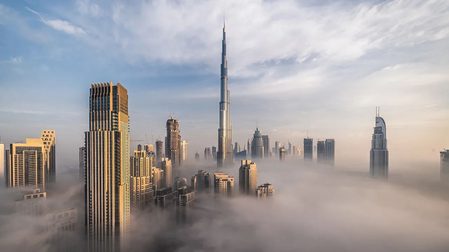
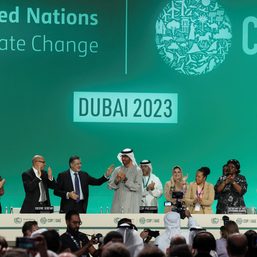
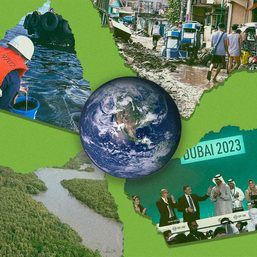
![[OPINION] Is limiting warming to 1.5°C still alive after COP28?](https://www.rappler.com/tachyon/2023/12/imho-cop28.png?resize=257%2C257&crop=285px%2C0px%2C720px%2C720px)
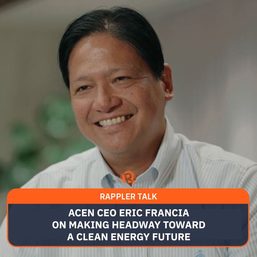
There are no comments yet. Add your comment to start the conversation.